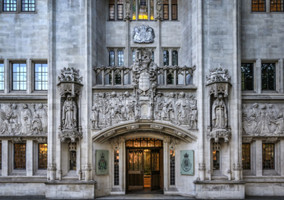The Institute of Legacy Management, a membership body for charity legacy professionals, has expressed concern that the Law Commission’s consultation on wills does not “pay sufficient attention to the increasing impact of technology” on will making.
As part of its submission to the Law Commission’s consultation on wills, which closes today, ILM has said the “growing trend towards writing wills through the use of technology was already affecting the probate process” but the consultation has “failed to acknowledge this”.
It is also critical of the Lord Chancellor being “given the power to introduce fully electronic wills by statutory instrument, without specifying a timeline or the level of public consultation” such a move would involve.
Chris Millward, chief executive of the Institute of Legacy Management, said: “The consultation seems to defer all conversation on technology in the will process, suggesting it’s a future problem. But we know that people writing wills online is having an impact now and requires considerable consideration, fast.
“The law needs to catch up quicker with the changing way people are writing wills. We can embrace technology while retaining essential safeguards and standards to make sure such wills are legally robust and vulnerable people are protected. Tighter regulation and standardisation of online will-writing platforms would help achieve this.”
The Law Commission opened its wills consultation in the summer, and said the “outdated law of wills needs overhaul to reflect the modern world”. It included a number proposals including enabling the court to dispense with the formalities for a will where it's clear what the deceased wanted.
Remember a Charity calls for ‘national wills database’
In its submission to the Law Commission Remember a Charity has called for a “national database model” for wills, to prevent more legacies in wills from being contested in the future.
The charity legacy consortium said that the Law Commission should recommend the creation of a “national wills storage system, particularly with a registration system that could also deal with the issue of revocation of a former will, ensuring a ‘national database’ model”. RAC said this would address concerns about wills being left at home and either getting out of date or being “fraudulently destroyed by others”.
The consortium also expressed fears that any “relaxation of the laws about what makes a will legally valid potentially creates uncertainty about what constitutes a will, and therefore the opportunity for a greater number of contested wills”.
Remember a Charity however did welcome the Law Commission’s proposal to “make wills more accessible via electronic wills”. The consortium said it believes “there is a demand for electronic wills” from the public.
It recommended introducing electronic and video wills “particularly for those who can no longer write or visit a solicitor’s office, or to test mental capacity or undue influence” was welcome.
RAC also said video wills “have the opportunity to reduce contested wills relating to gifts to charity, as they help establish the relationship between the donor and the charity”. However, it said there needed to be “clarity on whether a video will constitutes a letter of wishes or a legally-binding will”.
Rob Cope, director of Remember a Charity, said: “If the legal profession gets the balance right, this overhaul of will-writing could be crucial for growing charitable legacies.
"One of the biggest barriers to legacy giving is that too few people are making or updating a will and the process needs to be made simpler and easier to do, with sufficient safeguards in place to ensure people’s final wishes are met.”
Related Articles












